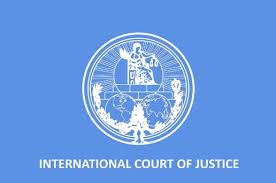Mediation under international law
Mediation Under International Law
Definition:
Mediation is a voluntary, non-binding process where a neutral third party (the mediator) helps disputing parties—often states, organizations, or businesses—reach a mutually acceptable agreement without resorting to litigation or arbitration.
Key Features of Mediation in International Law
Voluntary: Parties choose to mediate and can withdraw at any time.
Confidential: Discussions are private, encouraging open communication.
Neutral mediator: An impartial third party facilitates dialogue but does not impose decisions.
Flexible: The process can be adapted to suit the needs and culture of the parties.
Role of Mediation in International Disputes
Helps resolve conflicts peacefully without resorting to force or formal adjudication.
Can be used in disputes between states, international organizations, or private parties involved in cross-border issues.
Often used before arbitration or court proceedings as a way to save time and costs.
Sources & Frameworks Supporting International Mediation
United Nations Convention on International Settlement Agreements Resulting from Mediation (Singapore Convention on Mediation), 2019
Facilitates enforcement of mediated settlement agreements across borders.
Similar in purpose to the New York Convention for arbitration awards.
United Nations Commission on International Trade Law (UNCITRAL) Model Law on International Commercial Conciliation (2002)
Provides a legal framework to support mediation in international commercial disputes.
Peaceful Settlement of Disputes under the UN Charter
Articles 33-38 encourage states to seek mediation, negotiation, or other peaceful means before resorting to force.
Advantages of Mediation in International Law
| Advantage | Explanation |
|---|---|
| Cost-effective | Cheaper than litigation or arbitration. |
| Time-saving | Often faster resolution of disputes. |
| Preserves relationships | Collaborative approach helps maintain ongoing ties. |
| Flexible solutions | Parties can tailor outcomes to their interests. |
| Enforceability | Singapore Convention aids cross-border enforcement. |
Example of Use
States resolving territorial disputes through mediated negotiations.
International business partners settling contract disagreements without arbitration.
Mediation by international organizations like the UN or the International Centre for Settlement of Investment Disputes (ICSID).
Do write to us if you need any further assistance.












comments